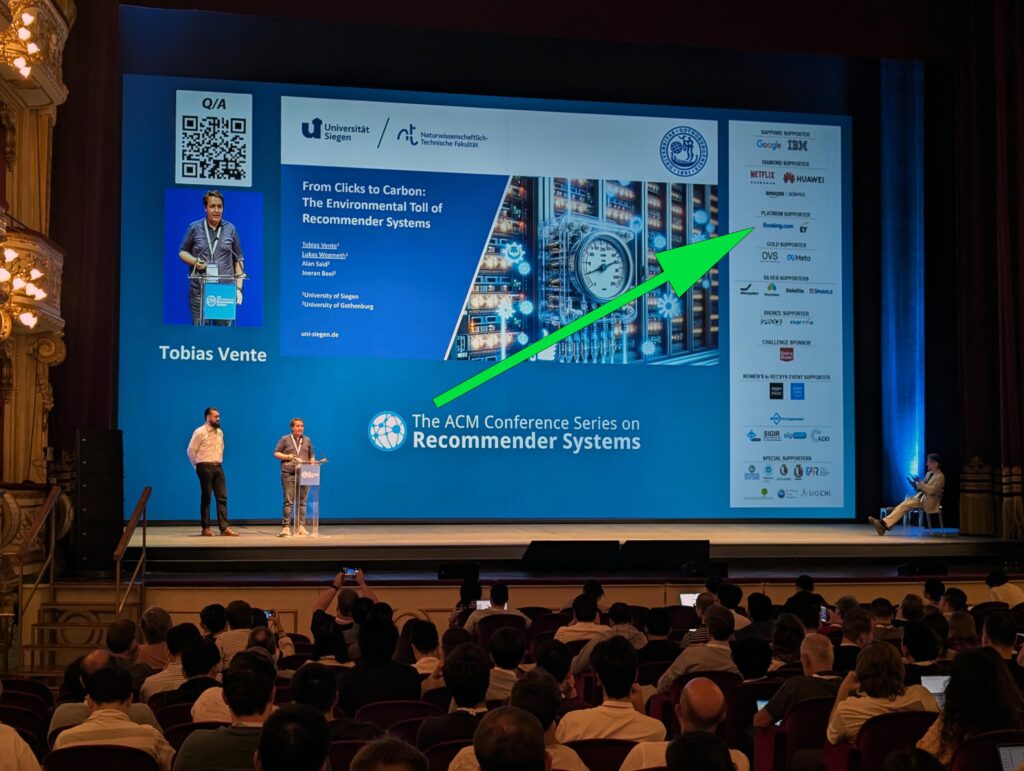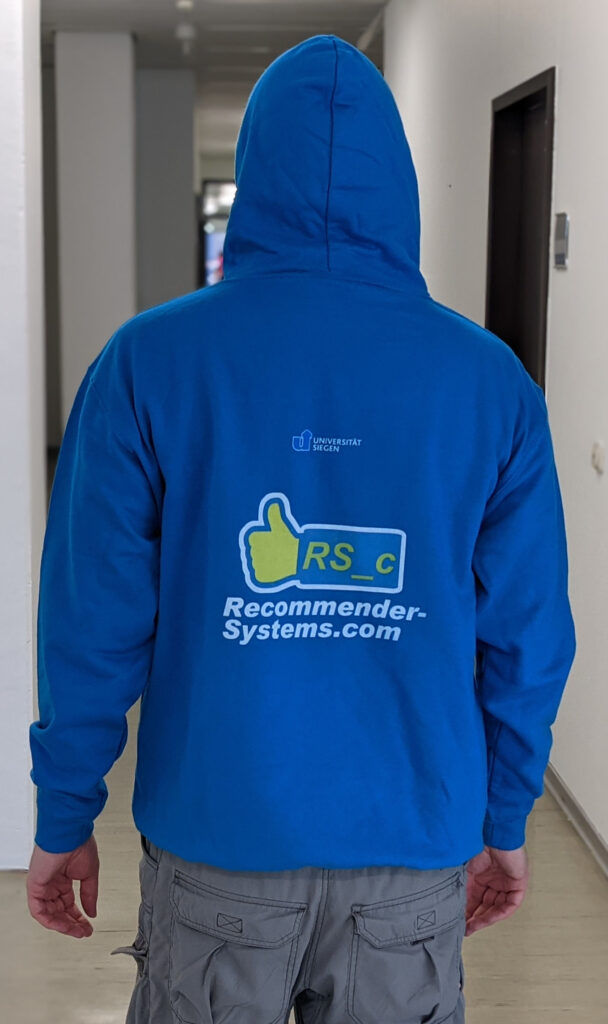New to the Recommender-Systems Community? Everything You Need to Know! Or: Why the RecSys Community is the Best in the World.
The recommender systems (RecSys) community is a vibrant and diverse field that welcomes people at all levels, from bachelor’s students to seasoned professionals. Whether you’re interested in math, machine learning and algorithms; software architectures and cloud computing; user experience, or the ethical challenges of recommendation technologies, the community offers opportunities for everyone.
In this article, we’ll explore what makes the RecSys community so special, its key events, how to join, and why recommender systems is an exciting field to be part of, both now and in the future.
Table of Contents
Join the RecSys Community
Joining the recommender systems community is straightforward. To get involved, you can start by attending key events such as conferences related to recommender systems or summer schools. Or, if you already researched something interesting as part of your Bachelor’s, Master’s or PhD thesis, just publish your findings at a workshop, conference or journal or as a pre-print. You may also get involved in one of the many open source projects such as recommender-system software libraries.
Meet the Community at the ACM RecSys Conference
The annual ACM Recommender Systems Conference (ACM RecSys) is the most important event in the recommender systems community, and it’s held in a different location each year, reflecting the global nature of the field. The primary goal of ACM RecSys — and other conferences relating to recommender systems — is to facilitate the exchange of knowledge and ideas and to provide a platform for presenting the latest research on recommender systems. However, ACM RecSys is more than just a place to hear about the latest research; it’s a platform for networking, learning, and social interaction. Attendees come from all over the world, representing academia and industry, and the event serves as a hub for formal presentations, informal discussions, networking and finding new career opportunities.
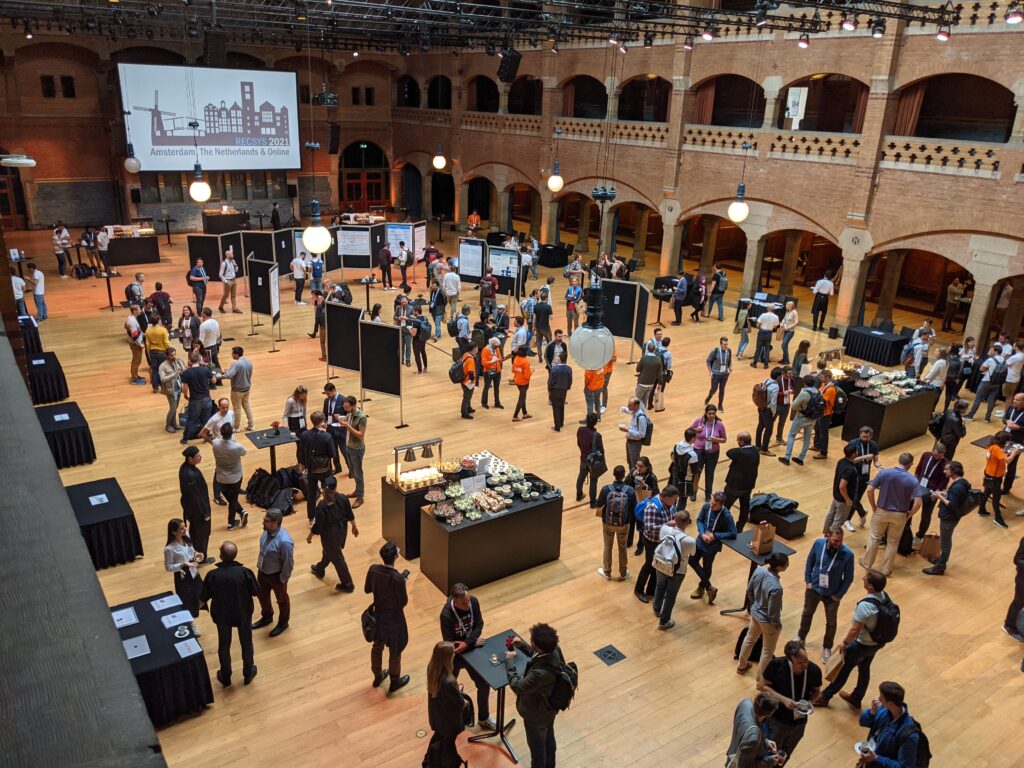
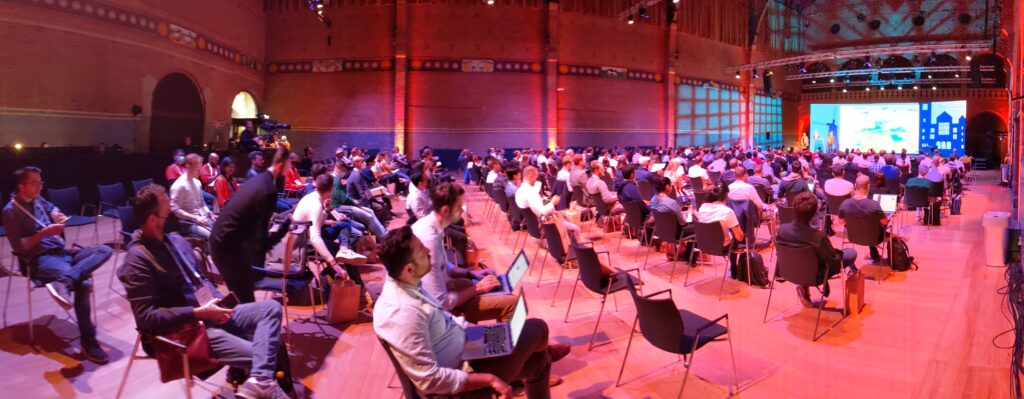
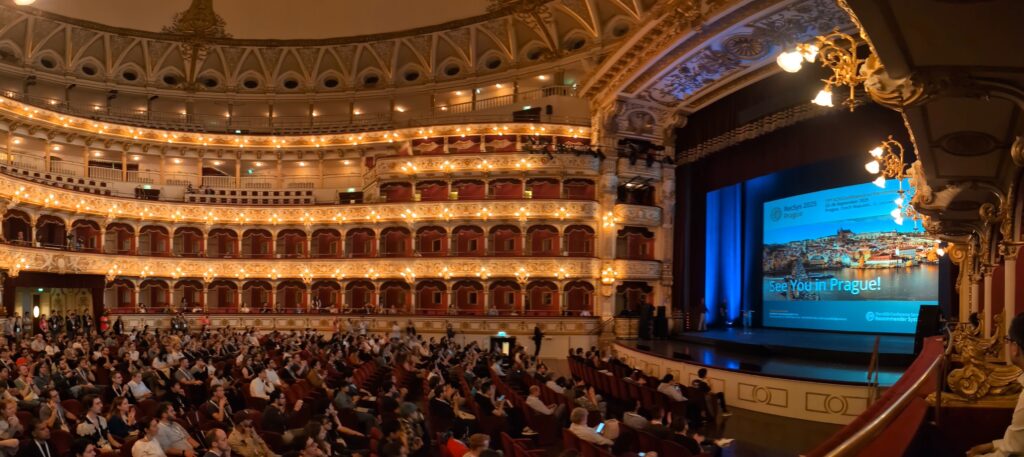
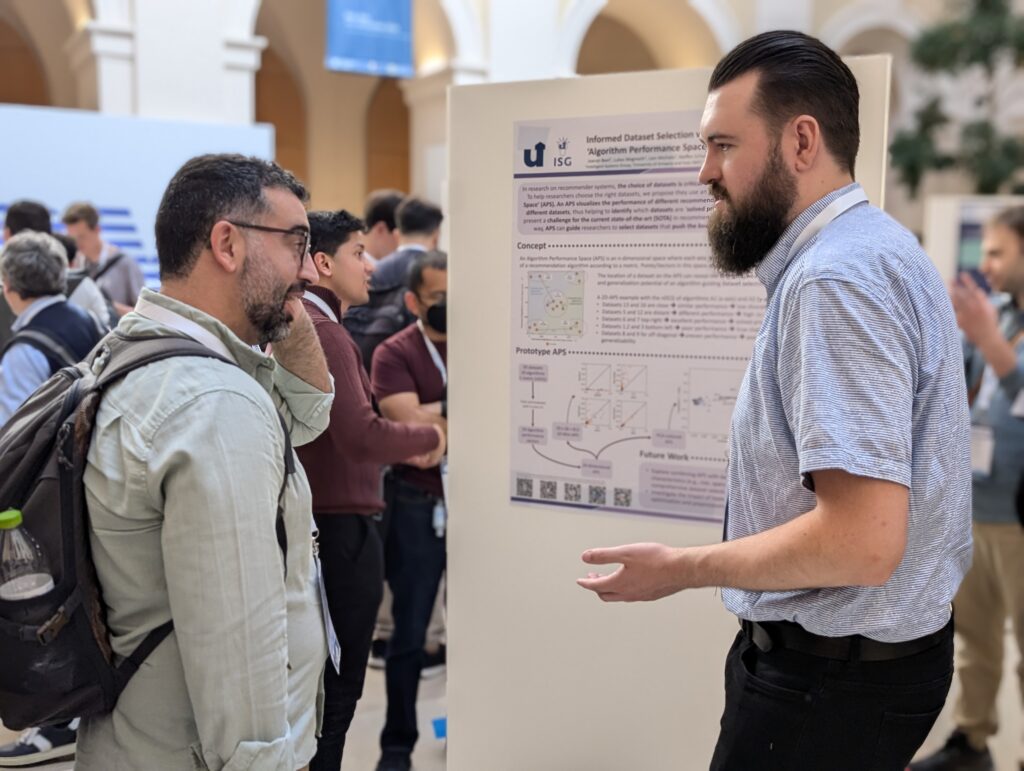
Everyone can register and attend the conference, but only persons who submitted their manuscripts a few months before the conference and whose manuscripts were positively evaluated in a scholarly peer-review process are allowed to present their work. For students, the volunteer program is highly recommended. Student volunteers help to organize the conference and get a registration fee waiver. Still, maybe most importantly, as volunteers, they will be directly and deeply integrated into the community and get to know many key figures.
Career Opportunities
One of the strongest reasons to consider a career in recommender systems is the wide variety of job opportunities. Recommender systems are everywhere—from e-commerce to music streaming, healthcare, education, and even politics. The expertise gained in this field is highly transferable, with companies around the world seeking skilled professionals to build and refine these systems. For a good reason, many of the most well-known IT companies sponsor the ACM RecSyS conference and attend the conference with recruiting teams looking for promising hires.
Moreover, RecSys is not just about algorithms, math and machine learning. The field spans a broad range of topics, including user interaction, software and network architectures, fairness, ethics, and the social and environmental impact of recommendations. The decisions made by these systems shape what people watch, read, buy and think. Their influence extends beyond simple business value, affecting public opinions and, potentially, elections. Because of this, researchers and developers in RecSys are at the forefront of some of the most impactful technologies in the modern world.
A Supportive Community
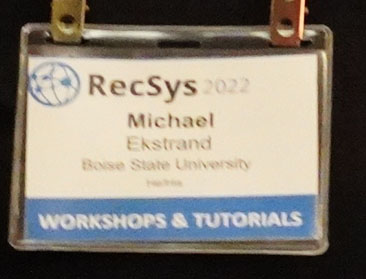
The RecSys community is known for being highly welcoming and collaborative. Even bachelor’s students are encouraged to participate, and it’s not uncommon for undergraduate students to publish their work at workshops held during conferences such as the ACM RecSys Conference. Whether you are new to the field or a more established researcher, there is an openness to sharing knowledge, feedback, and collaboration across all levels.
One of the great things about the ACM RecSys Conference, and most other conferences in the field, is the equality among participants. While name tags display affiliations, they do not show titles — whether someone is a professor, a PhD (student), or an undergraduate. And there is no dress code. This fosters a culture that focuses on ideas and contributions, making it easier for students to interact with senior researchers and industry professionals, regardless of who you are.
Every RecSys conference includes a social dinner, where participants enjoy excellent food and drinks in a relaxed atmosphere. These dinners offer more than just a meal—they provide valuable opportunities for networking in a casual setting, allowing participants to engage in deeper conversations, share experiences, and build lasting professional connections. Whether you’re a student or an experienced researcher, these events are a great chance to meet new people, discuss ideas outside the formal sessions, and enjoy the social side of the RecSys community.
This supportive atmosphere extends beyond the formal sessions. At RecSys conferences, participants commonly go out together for lunch or dinner, with people from all levels mixing. This creates an excellent opportunity for students to have interesting and personal discussions with professors or industry leaders whom they may have previously only known from a distance. These informal settings often lead to meaningful connections and valuable insights that go beyond the formal presentations.
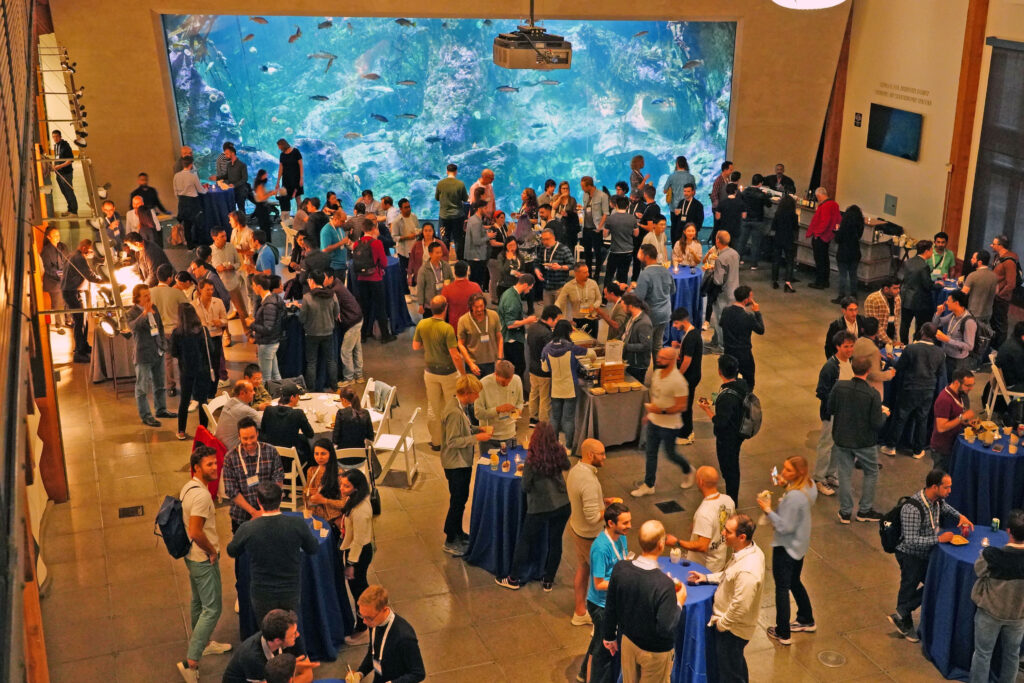

The community also embraces a relaxed side, with social events such as the karaoke session at the ACM RecSys Conference, where attendees can unwind and connect in a fun, informal setting.

Women in RecSys
The Women in RecSys initiative has grown significantly over the past decade, providing an important platform for women in the recommender systems field to connect, mentor, and support one another. At the ACM RecSys 2024 conference in Bari, Italy, the community celebrated the 10th anniversary of the Women in RecSys breakfast event, which has evolved from a small gathering into a large and thriving group, as shown in the image from this year’s event. Organized by dedicated members of the community, the breakfast brought together women from various backgrounds to reflect on the progress made, share experiences, and discuss future goals.
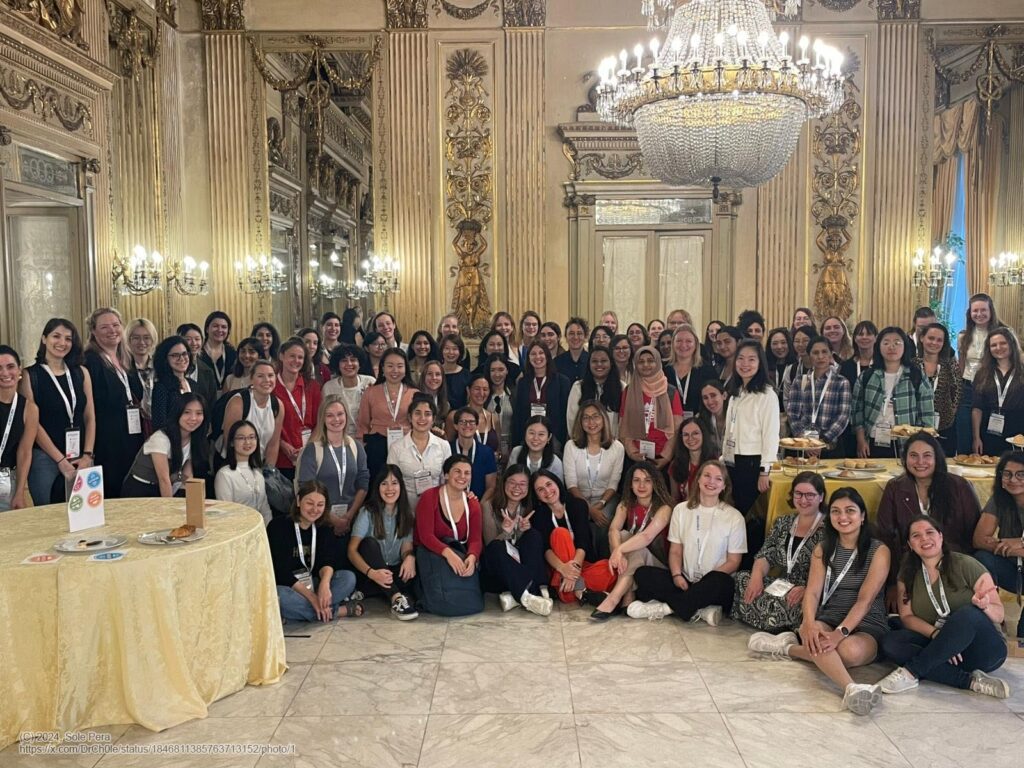
ACM TORS Journal
Another important pillar of the RecSys community is the ACM Transactions on Recommender Systems (TORS) journal. TORS provides a platform for high-quality research in the field and has embraced innovative approaches to ensure rigorous and transparent science. For instance, the journal offers registered reports, also known as result-blind reviews, which allow researchers to have their methodology and research questions peer-reviewed before they even begin collecting data. This approach encourages robust, reproducible research and helps foster good practices in the community. That being said, there are more journals for recommender-systems research.
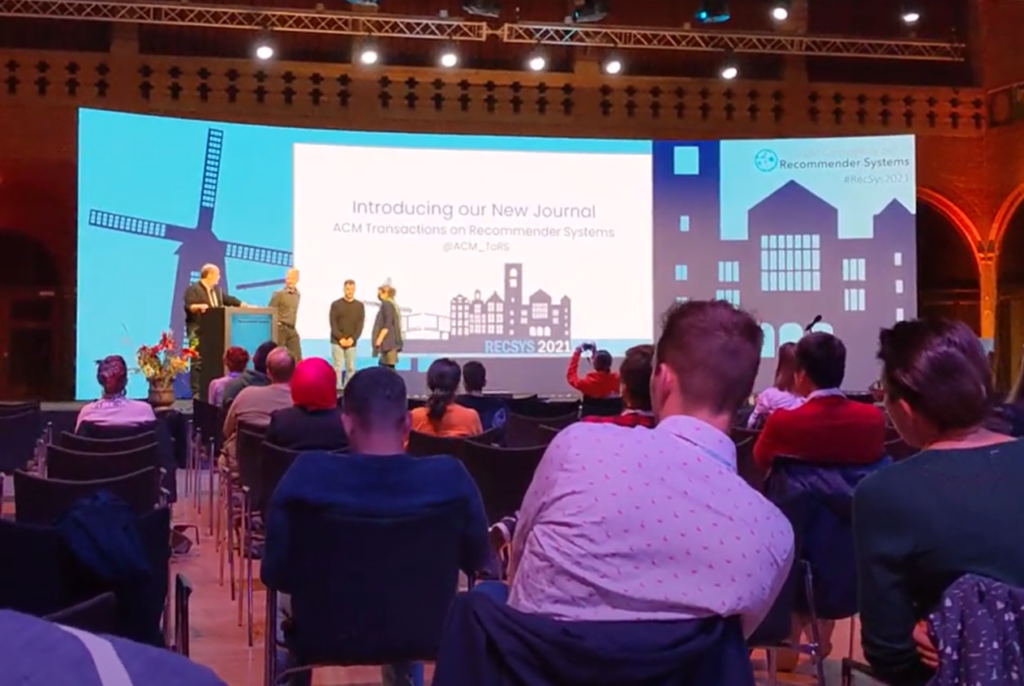
Summer Schools for Students and Newcomers
For students and newcomers, RecSys summer schools provide an excellent opportunity to dive deep into the field. These programs, typically lasting a few days or a week, are designed to give participants hands-on experience with recommendation algorithms, as well as exposure to emerging topics like fairness, ethics, and explainability in recommender systems. Led by leading academics and professionals, summer schools combine lectures, practical projects, and networking, creating a supportive learning environment. They are particularly beneficial for students seeking to deepen their understanding and build connections with peers and mentors in the community.
Doctoral Consortia
Doctoral consortia are critical in supporting PhD students as they progress in their academic journey and transition into professional careers. These consortia provide a structured environment where doctoral candidates can present their research, receive feedback from experienced scholars, and engage in discussions that deepen their understanding of the field.
Participating in these consortia helps students refine their research direction by receiving constructive critiques from senior researchers and peers. This input enhances the quality of their PhD work and helps them identify potential research collaborations and future publication opportunities. Moreover, students gain insights into best practices for research methodology, which can be pivotal in completing their PhD more efficiently.
Beyond research development, doctoral consortia are instrumental in career growth. They offer students the chance to network with prominent figures in both academia and industry. These connections can lead to job opportunities, collaborations, or mentorship, making the transition from PhD studies to a professional career smoother. Additionally, presenting at such events enhances students’ visibility within the RecSys community, establishing their presence as emerging scholars or practitioners.
Summary
If you’re new to the field, the RecSys community offers an ideal environment for growth. Whether you’re a student looking to publish your first paper, a professional exploring new research areas, or someone interested in the ethical implications of personalized recommendations, the community is welcoming and full of opportunities. Additionally, the community provides access to well-established software tools and datasets, which make it easier to conduct research and experiment with different approaches.
With global job opportunities, the ability to work across many domains, and the chance to be part of a field that directly impacts millions of users, the RecSys community is a dynamic and promising space for anyone with an interest in technology and its influence on society. By joining now, you’ll become part of a global network that is not only shaping the future of technology but also driving conversations about its broader impact on people and the world.

